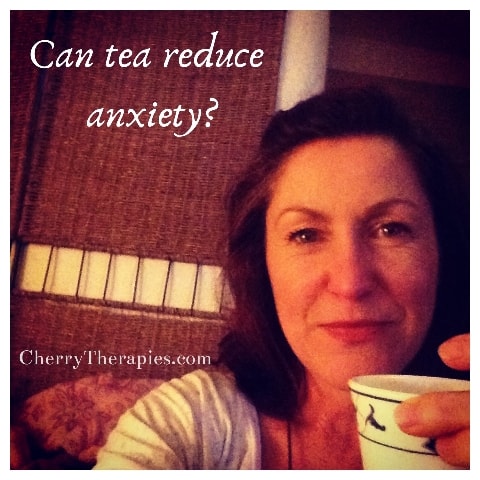A cup of tea is often the first thing we reach for when we’re feeling anxious. There’s something about that feeling of familiarity that gives us a sense of comfort when everything around us is falling into chaos.
Can a cuppa really reduce anxiety?
You might be surprised to know that there’s actually some solid science behind it all.
When we drink a warm drink, our vagus nerve is stimulated, which sends us feelings of calmness.

Keep calm – it’s time for a cuppa
What is the vagus nerve?
The vagus nerve is an extremely important nerve that is involved in the management and processing of emotions. Vagus nerve stimulation has been shown to give a calming effect; improving symptoms of anxiety.
One of the ways to stimulate the vagus nerve is called the ‘diving reflex’. This reflex can be achieved by splashing cold water on your face. Another way to activate the diving reflex is to submerge your tongue in warm liquid.
Which is exactly what happens when you have a cuppa!
Comforting routine
Aside from the physiology aspects, that sense of familiar routine – putting the kettle on, pouring the water, stirring the brew – can give us something to focus our mind on and takes our thoughts away from the anxiety. Having a simple task to do can provide a welcome distraction.
Simple act of kindness
Often a cup of tea is made for us by somebody who cares about us, and this act of kindness can bring a real sense of connection; a feeling that there’s somebody who’s supporting us, if only in a simple way.
The Great British Cuppa
Here in the UK of course, we’re renowned for our love of tea. Our favourite type is the typical black tea. It’s easy to forget that there are many types of teas to choose from.
Black tea contains caffeine, which conflicts with the anti-anxiety effects, as it’s a stimulant. So it can be a good idea to experiment with some caffeine-free types of teas, so you’re getting the full benefit of their calming abilities.
I recently got back from a trip to South Africa, where their most popular tea is rooibos (or redbush) tea.
It’s one of my favourite herbal tea alternatives, as it’s very close in flavour to ‘normal’ tea, and you can have it with milk (dairy-free milk in my case) and a sweetener of choice.
Other good caffeine-free herbal teas are chamomile, peppermint and hibiscus. There are also many selections of calming tea blends available in the supermarkets.
Time For A Cuppa
This week is ‘Time For a Cuppa’ week, organised by Dementia UK. If you’d like to get onboard and help out with raising awareness for Dementia, check out their website for some tea-riffic ideas…. (sorry… think I’ve drank too much tea today).

Leave a Reply